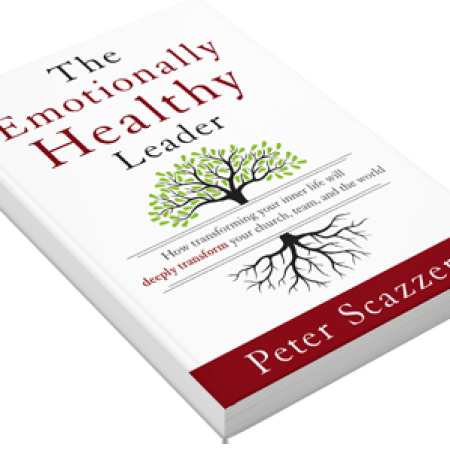Last month the newest book by Pete Scazzero, The Emotionally Healthy Leader, was released. It is for leaders, but it speaks to everyone. And in a way, everyone, in some way, is a leader, not necessarily by their role or level of responsibility but by their impact on others. John Maxwell says that leadership can be reduced to a one word definition…”Influence.” Influence can be for the positive or for the negative but everyone has some level of influence on some of the people they are surrounded by.
There are some very rich and dynamic teachings in this book. I recommend it for everyone, but especially for leaders and those in church ministry who have a sphere of influence. Below is an excerpt from his opening chapters.
“The vast majority of people in our churches have a second-hand spirituality, i.e. they live off the spirituality of others. Because people attend our weekend worship services, participate in our programs, give money and serve, we assume they are in a vital personal relationship of loving union with Jesus.
We assume wrong. They are not.
Ask the people you serve about their time with Jesus each day: “How often do you meet with Him around Scripture and prayer? What do you do, and for how long? How might silence, solitude, Sabbath, spiritual companionship, and study fit into your life?” Ask for specifics. You are in for a shock.
The world has changed dramatically. We have underestimated the magnitude of information overload, the moral decline of Western culture, and the impact of the Internet/social media in altering our brain circuits. “Dozens of studies by neurobiologists point to the same conclusion: when we go online, we enter an environment that promotes cursory reading, hurried and distracted thinking, and superficial learning” (Nicholas Carr).
It doesn’t matter what we preach. Unless our people spend intentional time cultivating their own first-hand relationship with the living Jesus, we are simply shuffling chairs on the Titanic.
A Christ-follower develops a posture of receptivity through spiritual disciplines that consciously help them develop the spiritual dimensions of our lives. “Like an artist who wishes to develop painting skills, or an athlete who desires a strong and flexible body, a person of faith chooses freely to adopt certain life patterns, habits, and commitments to grow spiritually” (Marjorie Thompson).
How many of our people approach following Jesus with the intentionality of an artist or athlete? The answer is: “Not many.” Helping our people develop a first-hand relationship with Jesus in today’s world is very hard work. But if we don’t wrestle with this, who will?”
What do you think?
How does it make you feel?
Shalom,
Steven

